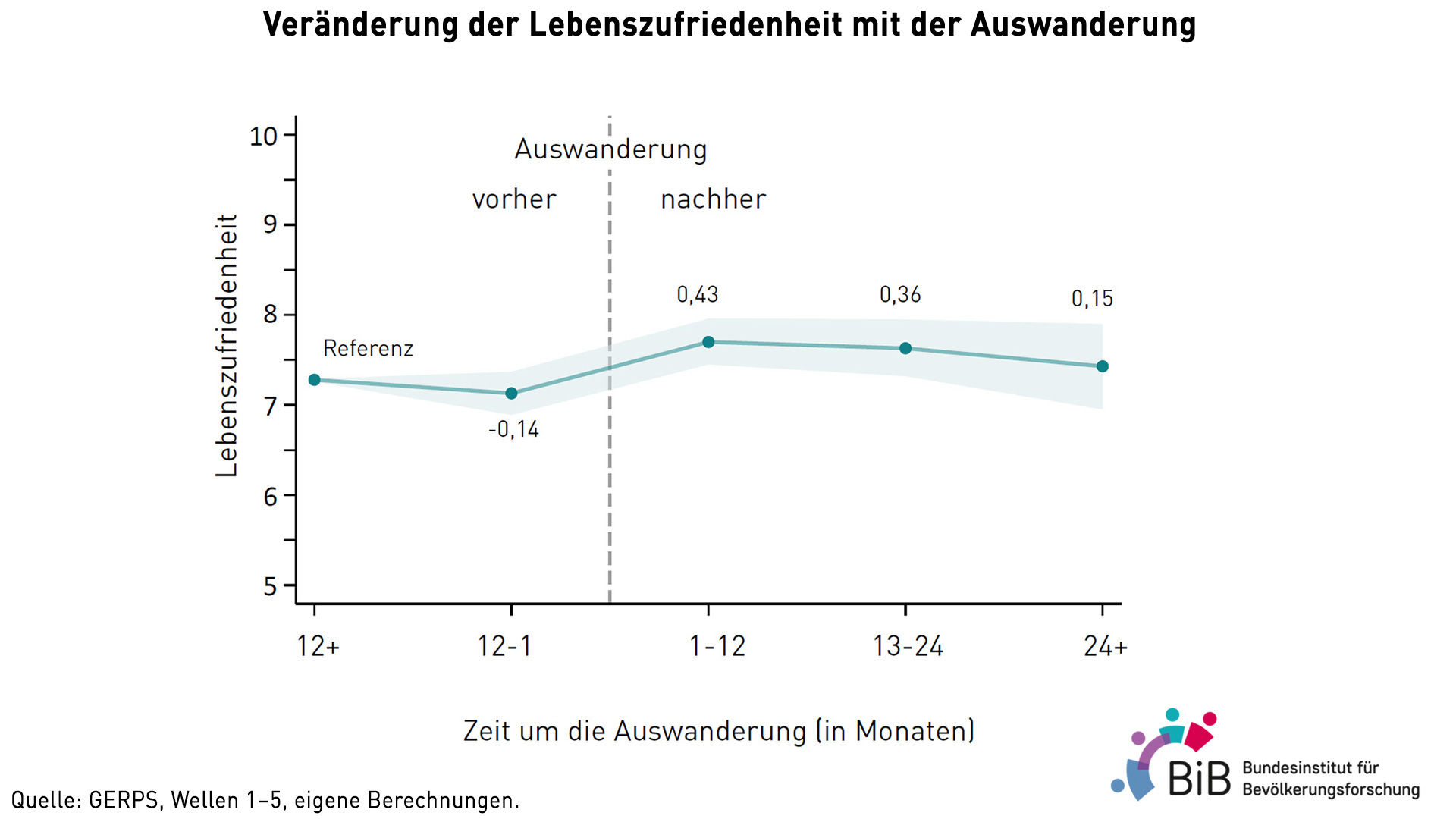According to migration statistics from the Federal Statistical Office, around 265,000 Germans emigrated in 2023 – but how do they feel after moving away? A recent study by the Federal Institute for Population Research (BiB) investigated this question and analysed how subjective well-being changes after moving abroad. The results show: Emigration significantly increases life satisfaction – the effect is strongest among singles.
Wiesbaden/Germany, December 18th, 2024 The study results are based on data from the German Emigration and Remigration Panel Study (GERPS), which was collected between 2017 and 2022. According to the study, the life satisfaction of the participants increased by an average of 0.5 points on a scale of 0 to 10 after their emigration. ‘This is a remarkable increase, which in comparison is around twice as high as the gain from moving within Germany or having a child,’ explains Dr Nico Stawarz from BiB. Particularly high gains in life satisfaction are found among people who were largely able to make the decision to emigrate themselves. Singles, for example, recorded the largest increase of 0.6 points. For people living in a partnership, the change is more moderate – especially if the decision to migrate was mainly initiated by the other partner. ‘The opportunity to incorporate personal preferences and needs into the decision to migrate plays a key role in increasing life satisfaction,’ says Dr Heiko Rüger, co-author of the study.
The study also shows that life satisfaction remains at a significantly higher level for up to two years after the move. However, the effect weakens with increasing length of stay abroad, which indicates familiarisation effects or a changed perception of the stay abroad.
Background: Reasons and challenges of emigration and return migration
In addition to financial benefits such as higher salaries, people are also motivated to emigrate for personal reasons, new career prospects or to study. At the same time, migration brings challenges, for example in the form of a new social environment, a different language and cultural adjustments. Previous studies have shown that around two thirds of people plan to stay abroad for a limited period of time and only for a few years. Last year, 191,000 Germans returned to Germany. In most cases, returnees benefit professionally from their time and experience abroad.
About the GERPS study
The data for the German Emigration and Remigration Panel Study (GERPS) was collected between 2017 and 2022. It is a representative survey of Germans who have recently left Germany or returned from abroad. As the emigrants were surveyed several times at intervals (long-term survey), it is possible to analyse their life satisfaction over several years. With the help of statistical methods, fluctuations in well-being can be better attributed to the event of emigration – regardless of other factors such as age or pandemic-related influences.
Translated with DeepL_com
Originalpublication:
Stawarz, Nico; Genoni, Andreas; Ette, Andreas; Rüger, Heiko (2024): Internationale Migration und Wohlbefinden Umzüge ins Ausland führen zu mehr Zufriedenheit. In: BiB.Aktuell 8/2024
Image source: Federal Institute for Population Research (BiB), Change in life satisfaction with emigration



Schreibe einen Kommentar